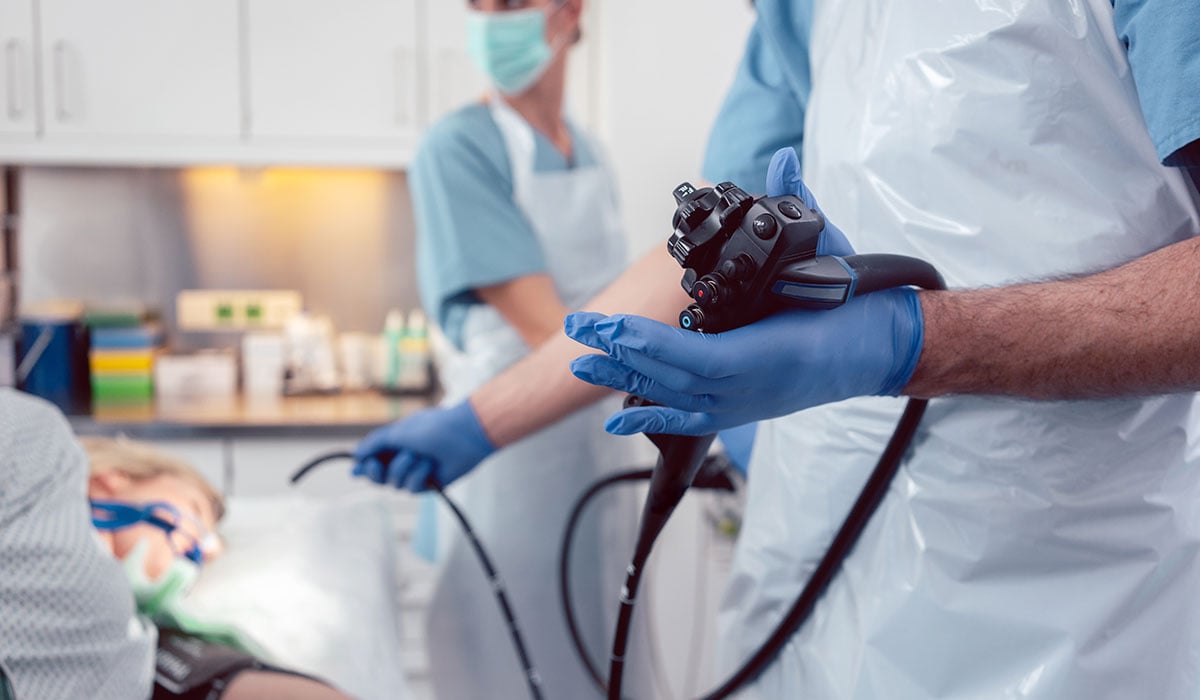Colon cancer arises in the colon aka large intestine, the 5- to 6-foot tube connecting the small intestine to the rectum, its final several inches. This digestive organ transports and processes food through several segments—including the cecum, ascending, transverse, descending, and sigmoid. Abnormal cells can develop in the lining of its wall or rectum. These can multiply uncontrollably and become cancerous, impacting the entire digestive system, and ultimately, causing death.
To prevent colon cancer, it’s important to learn more about what it is, how it operates and spreads, symptoms, causes, and preventative measures you can undertake to maintain a healthy lifestyle.
Types of Cancer in the Colon
The most common type of colon cancer is adenocarcinoma, which forms in cells that produce mucus inside the colon and rectum. Less-frequent types of tumors include carcinoid tumors, gastrointestinal stromal tumors, lymphomas, and sarcomas.
Symptoms of Colon Cancer
The major symptoms and signs of colon cancer include:
- Abdominal Pain, Bloating &/or Cramps
- Sporadic or Abnormal Bowel Movements (Constipation or Diarrhea)
- Rectal Bleeding
- Tenesmus (Incomplete Defecation)
- Extreme, Unexplained Weight Loss
- Fatigue
For more information about each symptom, read: “Watch Out for These Colorectal Cancer Symptoms.”
Colon Cancer Risk Factors
Several factors influence your chances of getting colon cancer, including:
- Advanced Age
- Heavy Alcohol & Drug Use
- Diabetes & Obesity
- High-Fat, Low-Fiber Diets
- Lynch Syndrome & Familial Adenomatous Polyposis
- Lack of Physical Activity
- Personal or Family History of Colon Cancer
How Colon Cancer Starts
Colon cancer typically starts as a small growth, also known as a polyp, on the inner lining of the colon. Although not all polyps become cancerous, some can evolve into the disease throughout time. Adenomatous polyps (adenomas), sessile serrated polyps, and traditional serrated adenomas are typically considered a precancerous condition, as they have a higher risk of doing so. This can increase if the polyp is more than 1 centimeter, if more than three are found, or if dysplasia, which indicates an abnormality, is detected.
How It Spreads
Cancerous cells typically form in the innermost layer of the colon wall, also known as the mucosa. These tend to grow outward through several or all of the layers, depending on the stage. When inside the wall, the cells can grow into blood or lymph vessels, which enable them to travel to nearby lymph nodes or other areas of the body.
The Five Stages
As colon cancer spreads and increases in severity, it undergoes five numerical-based stages. These explain where the cancer is located, how far it has spread, and if any organs have been compromised by the cancer.
Here are brief summaries of each:
- Stage 0: Cancer cells are discovered in the mucosa and remain inside the inner lining of the colon only.
- Stage 1: The cancerous cells have moved out of the mucosa and reached the muscular layer of the colon, but have not yet reached the lymph nodes.
- Stage 2: Patients can experience three distinct changes. In these subsections, lymph nodes are not impacted. Stage IIA features cancer cells within the outer layer of the colon, but not through it. In stage IIB, cancer cells penetrate the outer layer of the colon, reaching the membrane holding abdominal organs. Stage IIC cancer cells spread to nearby organs.
- Stage 3: Stage 3 can also be broken down into three subsections. In stage IIIA, cancer cells affect up to three nearby lymph nodes. Cancerous cells in stage IIIB spread to up to three lymph nodes and impact local organs. In stage IIIC, cancer spreads to four or more lymph nodes, in addition to nearby organs.
- Stage 4: The most advanced form of the disease, this is split into two subsections. In stage IVA, cancer has metastasized in one additional organ. In stage IVB, cancer has metastasized in more than one organ.
The 7 Ways to Proactively Prevent Colon Cancer
If detected and treated early, colon cancer is highly preventable. Proactive prevention involves making lifestyle changes to ensure a healthier future. To improve your colon health and reduce your risks, follow these take these seven actions:
1. Drink Plenty of Water
Reduce your risk of colon cancer by drinking the recommended amount of water daily: 11.5 cups (2.7 liters) for women, and 15.5 cups (3.7 liters) for men.
2. Eat Nutrient- & Fiber-Rich Foods
It’s essential to eat a nutrient- and fiber-rich diet of fruits, vegetables, nuts, whole grains such as quinoa or lentils, and seeds.
3. Avoid a Diet High in Processed Foods
The American Cancer Society recommends limiting red or processed meats, sugar-sweetened beverages, highly processed foods, and refined grain products.
4. Quit Smoking
The American Cancer Society also states those who smoke tobacco for a long time are more likely to develop colon cancer than those who do not smoke.
5. Reduce Alcohol Consumption
Colon cancer is linked to alcohol use, ranging from light to moderate to extensive, according to the American Cancer Society. Although it’s best to avoid alcohol consumption, those who do not should limit themselves to no more than two drinks per day for men, and one per day for women.
6. Exercise
Adults should get approximately 150 minutes of moderately intense physical activity or 75 minutes of intense activity per week to maintain a healthy lifestyle.
7. Get Screened
The Centers for Disease Control and Prevention suggests adults 45 to 75 years old get screened for colon cancer. It’s recommended that those older than 75 consult their physician about this. Patients under 45 who have a close relative with colon polyps or colon cancer, inflammatory bowel disease, or a genetic syndrome should begin screening earlier.
In addition, the organization advocates for several types of screening, including stool tests, flexible sigmoidoscopy, colonoscopy, and CT colonography.
To determine if a screening is right for you or to schedule a colonoscopy, contact Gastroenterology Associates today.
Topics: Conditions












